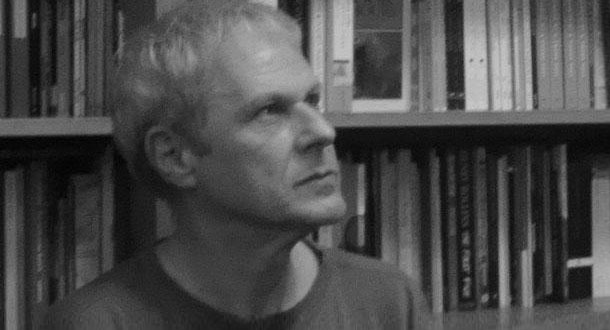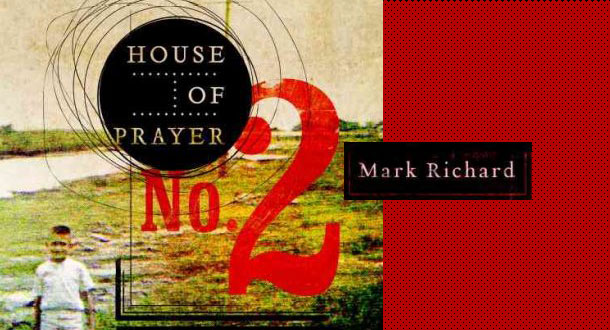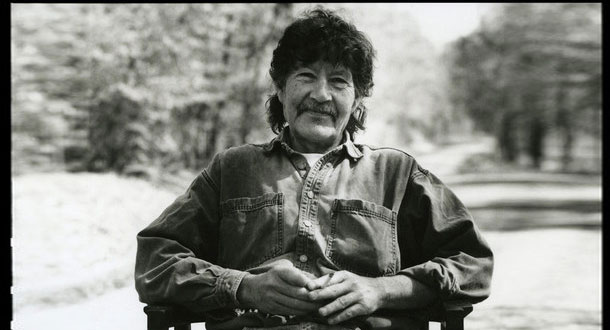If Jacob Everett didn't invent Apocalypse Confidential, God would have gotten around to it eventually. Where else would all of us Great Unwashed Scuzzballs go with our scrawl too obsessive and fetishistic for regular genre venues; where one can reference the occult and noir in the same breath without having to explain everything away? Being "noided" is a secret language; an energy simmering, pressure-steaming and beckoning us to continue until we're surrounded by its dense fog, where the only way out is a "big fucking scream." Into the void, APCON mashes up its namesake from James Ellroy's L.A. Confidential and the seminal Apocalypse Culture volumes from the sorely missed Feral House—both of which were key influences of my personal extra-curricular education into the underworld, so like many of you. When I learned of APCON, I rejoiced. LOVE SEX FEAR DEATH WASH RINSE REPEAT...
Describe the cross-section of interests of Apocalypse Confidential in your own words. Was the creation of APCON purely an extension of your own obsessions or did you see a void screaming to be filled?
While we certainly do a lot of void-screaming at AC, the creation of the mag was rooted in my own peculiar and particular fascinations. I’ve always been interested in the paranormal and parapolitical (i.e.: conspiracy stuff), as well as crime/underworld stuff. When I was a little kid, I watched The Godfather and Goodfellas constantly, and one year I got a Mafia encyclopedia from one of my aunts for Christmas, and I read that obsessively. So by the time I got into Ellroy, it was pretty much game over for me.
So the roots of AC come from a fusion of that set of interests. Our big line this year has been “low lives & high strangeness,” which is a riff on the descriptor of cyberpunk as “low lives & high technology.” While that genre probed anxieties regarding emergent tech, fused with the scuzzier aspects of society, what we’re trying to do at AC is chart a new sensibility for our current noided out moment, one where characters caught up in criminal or precarious circumstances engage with, whether by choice or not, elements of the otherworldly, the occult, paranormal, speculative, anomalous, or conspiratorial.
Since part of the APCON name is inspired by Ellroy’s L.A. Confidential and his shadow looms heavy in your corner, including the podcast Ellroy Boys, what can you tell us about this connection? I personally feel we are a misunderstood demographic—for example, some might think Ellroy or his male fans might be chauvinists, whereas in fact, I see us more accurately as haunted by women, humbled by their inherent power or absence.
Ellroy’s work is absolutely haunted by women, cherchez la femme, and all that, and that’s certainly an attractive aspect to all us yearners. A lot of noir and hardboiled fiction is that way, I think. There’s this perception that these genres are deeply cynical, when they’re often nothing if not romantic, and Ellroy’s novels are the ne plus ultra of that sensibility.
What drew me to Ellroy is how goddamned fun he is to read. He loves language in all its beautiful, vulgar glory, and that comes across on every page. The first book of his I read was American Tabloid. I went to the bookstore looking for The Serpent and The Rainbow for a class freshman year of high school, but I couldn’t find it and I was too chickenshit to ask a clerk, so I went to the mystery/thriller section to find a book I’d passed by on a previous visit, and it was American Tabloid. I judged the book by its cover, and in exchange, I got a life sentence of being an Ellroy boy.
As someone interested in parapolitics, I instantly latched onto the whole “hidden infrastructure of the 20th century” aspect of it, and as a horror fan, Ellroy masterfully depicted the Joyce line about history being a nightmare you’re unable to awake from–the book ends with a “big fucking scream” after all. There’s a character in that book, more or less a background extra, called Chuck Rogers; he’s a pilot and in on the plot to whack Jack. You look him up and you learn that he was a real dude who disappeared in 1965 after he murdered his parents, chopped up their bodies, and stuff them in the icebox in their Houston home. There’s no reason in polite society for a guy and an incident like that to have such proximity to the assassination of the President of the United States, but there it is. And by including Rogers in his story, Ellroy implies a connection: that both the murders of the parents and the slaying of the President were a part of the same national sickness, and that the barrier between the upper and the underworlds dissolved long ago if such a barrier even existed in the first place.
Name every member of the AC staff, what each one brings to the table, and why you brought them aboard.
Max, the Managing Editor, reads every submission we receive, a master of all things pulp and hardboiled, frequently assists with header images.
Dawson, the Fiction Editor, toes the line between our interests in hardboiled and speculative fiction, so he’s perfect for reading our fiction subs and choosing what fits our vision.
Tom, Poetry Editor. Honestly I don’t know shit about poetry, but Tom knows what he likes, and I like what Tom likes, so I give him free rein to run the poetry section.
Will, the Books Editor, had zero publishing experience before I tapped him for this gig and he’s done a better job that I could have imagined (I recommend reading the interview with him on Bruiser).
Brendan, Deputy Publisher/Visual Arts Editor, a former fellow Ellroy Boys co-host who frequently interviews artists on his podcast, Tales from the Mall, and an artist himself, so he was the logical choice to be our visual arts editor as we expand in that section.
Eitan, the Essays Editor, our most recent member. The essays section had been a straggler for a while compared to fiction and poetry, but Eitan’s interest in the metaphysical and parapolitical forms a compelling vision that’ll turn Essays into the online salon of the theoretical, critical and philosophical.
Tully, Editor at Large. Right now he’s literally at large, somewhere in Nebraska at the time of this writing. He brings an effervescent edge akin to the early, globetrotting days of Vice magazine. When we have a TV channel he’ll be our man on the ground.
Rachael, Director of Operations. As we’ve expanded into events and merch, she has been integral to keeping the ship afloat on an operational level. She helps me keep the engine running, letting the other members of the team keep our editorial edge sharp.
Beyond all that, a key thing for me is that all of the editors have been past contributors to the site, so they found AC in a “vibe attracts your tribe” type way, and they each serve as totems of our vision and interests.
I see not so much specific conspiracy theories but more the theory of conspiracy fueling much of AC. Maybe a fascinated prodding at the phenomenon, like what author Erik Davis calls “high weirdness,” where, regardless of truth or facts, our deceitful culture has created a paranoia so palpable that it’s become its own reality. QAnon would be an example just as much as the JFK assassination. How does APCON embrace this?
I think “theory of conspiracy” is a great way to put it. As I said in the answer to your first question, our current moment is a very paranoid one, paranoid about dark, hidden forces behind current events and history, but also a kind of meta-paranoia about paranoia itself. I think that anxiety can curdle into something like QAnon, which functions as a counter-conspiracy theory (i.e.: “It’s our conspiracy against their conspiracy”). Whether via podcasts with huge subscriber bases or cable news, topics of conspiracy have moved from the fringes of message boards and Coast to Coast AM (no shade, I worship at the altar of Art Bell) to whatever passes for the mainstream these days. "Apocalypse" means revelation, and apocalypse happens every day. As the coherence of map and terrain blurs and disintegrates, Apocalypse Confidential is a lantern to guide readers through the uncanny dark.
One line of mine that I like is “parapolitics is to history/current events as urban exploration is to architecture,” and I think that sensibility is present in what we publish, even if not apparent. It goes back to that “hidden infrastructure” that Ellroy writes about. We’re not so much interested in any specific conspiracy, but rather, the hauntedness we feel when we get that nagging feeling that we’re being conspired around in the maintenance tunnels of power or that something just isn’t quite right.
What made APCON want to start a press? What can you tell us about your two releases and what else is coming down the pike?
 It was always something we wanted to do since the beginning of last year. When we were contacted by the elusive, enigmatic Frank Peak regarding a manuscript of his, I felt it was perfect as our first title, a mix of noir and occult and religiosity, so when Will graciously came aboard as our Books Editor, I was like, Great, anyway this is our first book. So that’s the origin of The Book Of. Our second release, Pale Townie, is a riff on the titular poem nestled within Nabokov’s Pale Fire, by our poetry editor Tom Will. Besides being beautifully written, it felt cool and made sense to do a “for us, by us” type thing for our next release.
It was always something we wanted to do since the beginning of last year. When we were contacted by the elusive, enigmatic Frank Peak regarding a manuscript of his, I felt it was perfect as our first title, a mix of noir and occult and religiosity, so when Will graciously came aboard as our Books Editor, I was like, Great, anyway this is our first book. So that’s the origin of The Book Of. Our second release, Pale Townie, is a riff on the titular poem nestled within Nabokov’s Pale Fire, by our poetry editor Tom Will. Besides being beautifully written, it felt cool and made sense to do a “for us, by us” type thing for our next release.
Our next book is Incurable Graphomania by Anna Krivolapova, who we’ve published on the site before. It’s a collection of short stories saturated in the parapolitical, definitely in line with our “low lives & high strangeness” thing. It’ll be out on September 21, and is currently available for preorder.
Our final title of the year will be a reprint of Max Thrax’s God is a Killer. I’m excited to bring that under the APCON Press umbrella, and we hope to have it out in December, a perfect Christmas present for the whole family!
You just held your first live event, Sub Rosa, in Portland. Give us a play-by-play. Is this the first of many gatherings to come?
It went fantastically. The event was the big thing that Rachael focused on when she came aboard as ops director since she has a background in events, especially fundraisers. We put it on at the Clinton Street Theater, who were great and accommodating, one of the oldest theaters here in Portland. We did a double feature of “Portland sin and sleaze”: Portland Expose, a noir flick from 1957 about organized crime, corruption and pinball perfidy during the time that resulted in a Congressional investigation, and Unhinged, a video nasty filmed in 1982 at the Pittock Mansion, a local historical landmark. After about a decade or so of commodified weirdness, of “put a bird on it” quirkiness, the bad old days of Portland, from when it was a rough and tumble port city full of hustlers and sickos, are back again, and we wanted Sub Rosa to be a commemoration of that.
The folks at the CST liked our curation so much that they’ve asked us to do programming with them under the APCON/Sub Rosa banner on a semi-quarterly basis, which should get started around October. It’s a very cool opportunity to get our vision out there and show some wild movies.
Beyond that, we definitely have plans for more gatherings here in Portland and elsewhere across these United States, and internationally as well. Our hope is to do more than host readings or screen movies, not that there’s anything wrong with those things—we want to do those things!—but our ambition is for each APCON event to be a spectacle and one that’s tailored to whatever location we’re in. Nothing’s set in stone yet, but there’s low lives and high strangeness around the globe, and wherever low lives and high strangeness intersect, we’ll be there.
Get The Book Of at Amazon
Get Pale Townie at Amazon

About the author
Gabriel Hart lives in Morongo Valley in California’s High Desert. His literary-pulp collection Fallout From Our Asphalt Hell is out now from Close to the Bone (U.K.). He's the author of Palm Springs noir novelette A Return To Spring (2020, Mannison Press), the dispo-pocalyptic twin-novel Virgins In Reverse / The Intrusion (2019, Traveling Shoes Press), and his debut poetry collection Unsongs Vol. 1. Other works can be found at ExPat Press, Misery Tourism, Joyless House, Shotgun Honey, Bristol Noir, Crime Poetry Weekly, and Punk Noir. He's a monthly columnist for Lit Reactor and a regular contributor to Los Angeles Review of Books.

.jpg)




